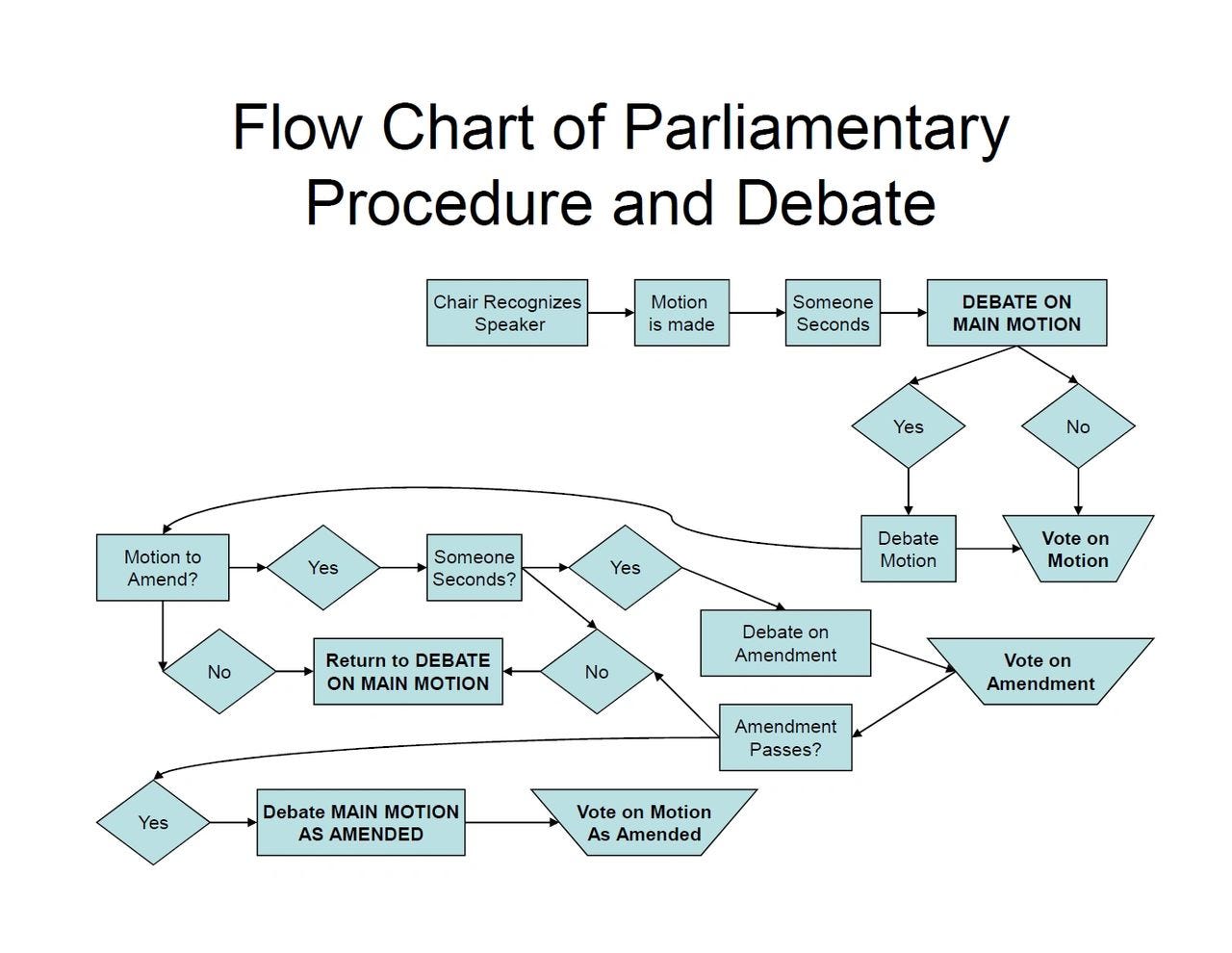Comment provided - a parliamentary procedure app
I read Robin Hanson's post "Comment Requested" and I think it relates a lot with an idea I have been thinking of for some time now.
I believe a key aspect of why parliamentary organizations work better is that they rely on parliamentary procedure (despite its bad rap). Unlike debates on Twitter which have no specific conclusion, no order of business, no specification of who is qualified to decide on the matter, parliamentary procedure is an algorithm that developed over centuries through trial-and-error and is used by virtually all of the more functioning organizations.
The stripped down version of the algorithm works according to the flowchart below
Here is how this connects Robin's post. You might have an idea that you believe should get greater recognition and/or better inputs from knowledgeable people. You define who has standing (or this is previously defined - one group could be Mason Bloggers, for example). Then you present the text you believe should be approved by the whole group. Instead of the back-and-forth of replies in blogs or tweets such as we have today, the other members of the group would propose amendments to the text, which would be voted on by the other members. When a final text was ready for voting, it would be approved by a 50% majority, or killed. And then it would reflect the opinion of the collective body.
The greatest feature, I believe, is that mere nitpicking, changes of subjects, "what is truth really?", would not be enough to prevent a good idea from developing. At the same time, if there are significant improvements to the idea, they would appear on the amendment part.
Although almost all organizations adopt some form of parliamentary procedure very close to that, science works very differently. In peer review, we have an author, which receives feedback from reviewers, this feedback does not specify how the text should be changed exactly, only what the general gist of what is expected. The feedback from different reviewers can be contradictory. The author may think that he addressed the reviewer's concern but the reviewer disagrees. The author and other reviewers may disagree with what one reviewer would like to see changed, but the author will comply anyway. Frustrated with peer review, some thinkers revert to social media and blogs, which have their advantages but also very well-known disadvantages. Of course, this would have disadvantages too, but it is being proposed in addition to what we currently have, not as a complete substitute.
Until today, parliamentary procedure has depended on someone being able to consistently apply the algorithm, which is not extremely complex but not trivial either. This makes it expensive and dull. But it surely can be automated and have its use more widespread. I was thinking on how this could be made as an app, or even as a functionality of existing apps.
Any thoughts welcome.



